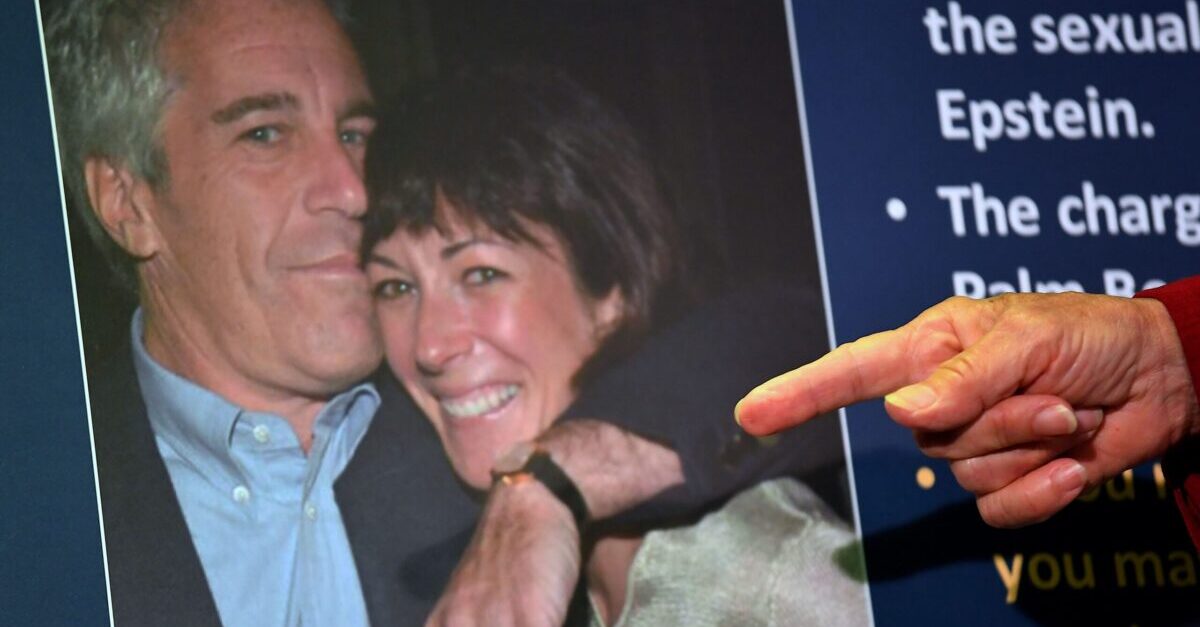
Federal prosecutors must disclose the “identities of any unnamed co-conspirators” whose names they plan to refer to at trial to Ghislaine Maxwell, a federal judge ruled on Friday.
In a three-page ruling, U.S. District Judge Alison Nathan also ordered the government to “disclose all co-conspirator statements it intends to offer at trial no later than” Oct. 11.
“The government argues that there is no risk of surprise because ‘it currently intends’ to introduce the alleged co-conspirator statements of only two individuals,” the order states. “At the same time, however, the Government proffers that it ‘may change its view as it prepares for trial.’ […] The Court thus finds the Government’s reassurance hollow and insufficient to ensure that the Defendant may adequately prepare her defenses.”
Equally significant to Judge Nathan as the government’s stated justification was what prosecutors did not argue.
“Moreover, the Government has not alleged that disclosure here would create ‘potential danger to co-conspirators’ or risk ‘compromising continuing investigations,'” the judge wrote. “It merely argues that disclosing the identities risks ‘harm to the Government from restricting its proof at trial.'”
Judge Nathan was skeptical about this claim.
“The Government provides no explanation for this purported harm and none is apparent to the Court,” she wrote. “Thus, the Court finds that this concern alone does not outweigh the risk of surprise to the Defendant in this case or the need for the parties to litigate co-conspirator issues in advance of trial to ensure the absence of delay.”
Maxwell asked to learn their identities earlier, as one of the categories of information her defense team requested to avoid a trial-by-ambush.
Assistant U.S. Attorney Alison Moe asked Judge Nathan in mid-August to shield those names.
“This Court has twice concluded that no bill of particulars is warranted because the defendant has adequate information to prepare for trial and avoid unfair surprise,” the prosecutor wrote at the time.
With Friday’s ruling, that trend has changed.
“The conspiracies charged are long-running, increasing the risk of surprise to the defendant,” Judge Nathan noted.
Charged with sex trafficking and other offenses, Maxwell faces a superseding indictment with alleged conspiracies that date back decades. The scheme charged in one of the counts spans between 1994 to 2004, and the other runs between 2001 and 2004.
As a result of a prior ruling, Maxwell’s trial has been split in two, with the first trial in November. Prosecutors have characterized her case as the “prequel” to the Jeffrey Epstein saga.
After that trial’s conclusion, Maxwell will face another accusing her of lying in a deposition in a civil case filed by her alleged victim Virginia Giuffre, a prominent Epstein survivor.
In early August, Giuffre sued Prince Andrew in a lawsuit accusing him of sexually abusing her when she was 17 years old in three locations: Epstein’s New York mansion, Maxwell’s London home, and Epstein’s so-called “Pedophile Island” in the U.S. Virgin Islands.
The U.S. Attorney’s office for the Southern District of New York repeatedly called the prince uncooperative in their investigation. That office has handled the prosecutions of Epstein and Maxwell.
Giuffre filed her civil lawsuits against Maxwell and Andrew in the same jurisdiction: Manhattan Federal Court.
Read the three-page order below:
[image via JOHANNES EISELE/AFP via Getty Images]